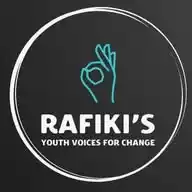
RAFIKI'S YOUTH VOICES FOR CHANGE (RYVC)
February 5, 2025 at 01:54 PM
*_1. Educate Yourself:_*
🌀Learn the facts about HIV: Understanding how HIV is transmitted, how it affects the body, and the advancements in treatment is crucial. Knowing that HIV is not transmitted through casual contact and that people with HIV can live long, healthy lives with treatment is essential.
🌀Reliable sources: Get your information from reputable sources like the CDC (Centers for Disease Control and Prevention), WHO (World Health Organization), or local HIV/AIDS organizations.
*_2. Listen and Be There:_*
🌀Offer a safe space: Let your friend know you're there to listen without judgment. They may need someone to talk to about their fears, concerns, or just everyday life.
🌀Respect their privacy: HIV is a sensitive topic. Don't share their status with anyone else unless they give you permission.
🌀Be patient: They might not always want to talk about it, and that's okay. Just being present and supportive can make a big difference.
*_3. Offer Practical Support:_*
🌀Help with everyday tasks: Offer to help with errands, chores, or childcare if needed.
🌀Accompany them to appointments: If they're comfortable with it, offer to go with them to doctor's appointments for support.
🌀Support their treatment: Encourage them to adhere to their medication regimen, as this is crucial for their health and preventing transmission.
*_4. Challenge Stigma:_*
🌀Speak out against discrimination: If you hear people making negative comments or spreading misinformation about HIV, challenge them with facts and compassion.
🌀Use respectful language: Avoid using outdated or stigmatizing terms like "AIDS victim" or "HIV carrier."
*_5. Maintain Normalcy:_*
🌀Treat them the same as always: HIV doesn't change who they are. Continue to do the things you used to do together and show them that your friendship is unwavering.
🌀Focus on their strengths: Remind them of their positive qualities and accomplishments.
*_6. Take Care of Yourself:_*
🌀Supporting someone with HIV can be emotionally challenging. Make sure you have your own support system in place and don't hesitate to seek help if you need it.
Important Considerations:
🌀Ask your friend what they need: The best way to support them is to ask them directly what kind of help they would appreciate.
🌀Respect their boundaries: They may not want to talk about their diagnosis or accept help all the time. Respect their wishes and let them know you're there for them when they need you.
❤️
👍
8